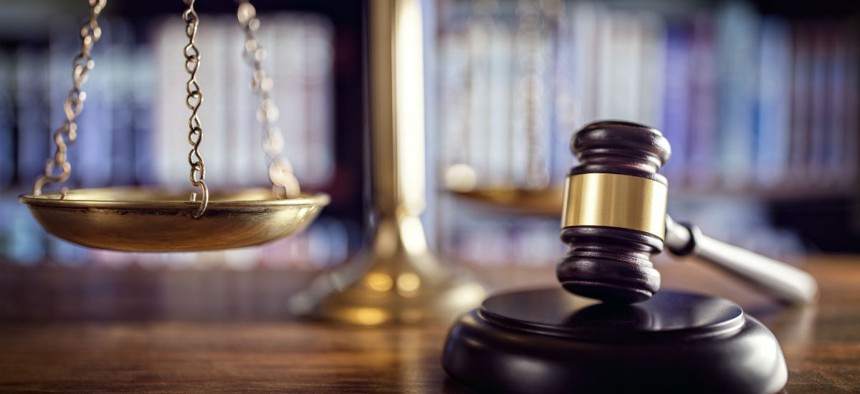
By Brian A Jackson / Shutterstock.com
Judge Slams Justice and State Departments for Inept Handling of FOIA Requests
Ruling saying the agencies’ approach “smacks of outrageous misconduct” and “negligence” gives new life to Clinton email case.
In another of many stories from the 2016 presidential campaign that will not die, a district judge last week handed a victory to the conservative legal transparency group Judicial Watch by requiring two major federal agencies to perform a do-over on their search for missing Hillary Clinton emails.
In a Dec. 6 ruling, Judge Royce Lamberth of the U.S. District Court for the District of Columbia ordered the Justice and State departments to meet with the plaintiffs’ attorneys to discuss next steps in determining whether Obama administration first-term Secretary of State Clinton’s use of a private email server was an “intentional attempt to evade” the Freedom of Information Act. They will also review whether State’s attempts to settle the Judicial Watch document-request case in 2014-2015 regarding the deaths of four Americans at the hands of terrorists in Benghazi, Libya, “amounted to bad faith,” and whether State had adequately searched its files for the legal group’s requested documents.
Lamberth, an appointee of President Reagan, used tough language in requiring that the two departments respond within 10 days on requests that go back to the Obama administration, saying the agencies’ approach “smacks of outrageous misconduct” as well as “negligence borne of incompetence.” The judge suggested the possibility that “career employees in the State and Justice departments colluded to scuttle public scrutiny of Clinton, skirt FOIA and hoodwink this court.”
Faced with “one of the gravest modern offenses to government transparency, the State and Justice departments fell far short,” the judge wrote. “So far short, that the Court questions even now whether they are acting in good faith,” he continued, saying the new action is required by the court “to see if it can rule out egregious government misconduct and vindicate the public’s faith in the State and Justice departments.”
Lamberth added that “The Court takes no pleasure questioning the intentions of the nation’s most august executive departments. But it still remains unknown whether Clinton used a private email server to duck FOIA requests.”
Judicial Watch, which has continued its five-year-old quest for more Clinton documents as the Trump administration nears its third year, filed its first request for Benghazi documents in 2014—months before the public learned that Clinton had maintained a private server. It continues to seek what it regards as missing relevant emails.
“The historic court ruling raises concerns about the Hillary Clinton email scandal and government corruption that millions of Americans share,” said Judicial Watch president Tom Fitton. “Judicial Watch looks forward to conducting careful discovery into the Clinton email issue and we hope the Justice Department and State Department recognize Judge Lamberth’s criticism and help, rather than obstruct, this court-ordered discovery.”
The government’s lawyers had argued that Judicial Watch was requesting documents that were already public, a characterization the judge rejected.
On Monday, a State Department official said in an email to Government Executive, “We are aware of Judge Lamberth’s recent order defining the scope of discovery in the FOIA Litigation case….. The department takes its records management responsibilities seriously,” adding that it is reviewing the ruling. “The Department of State will continue to act in good faith with respect to its FOIA processing and litigation.”
Justice declined comment, as did several FOIA transparency advocacy groups contacted by Government Executive. Patrice McDermott, director of Government Information Watch, said Lamberth’s ruling “sets an important standard for records held outside the physical custody of the agency.”







